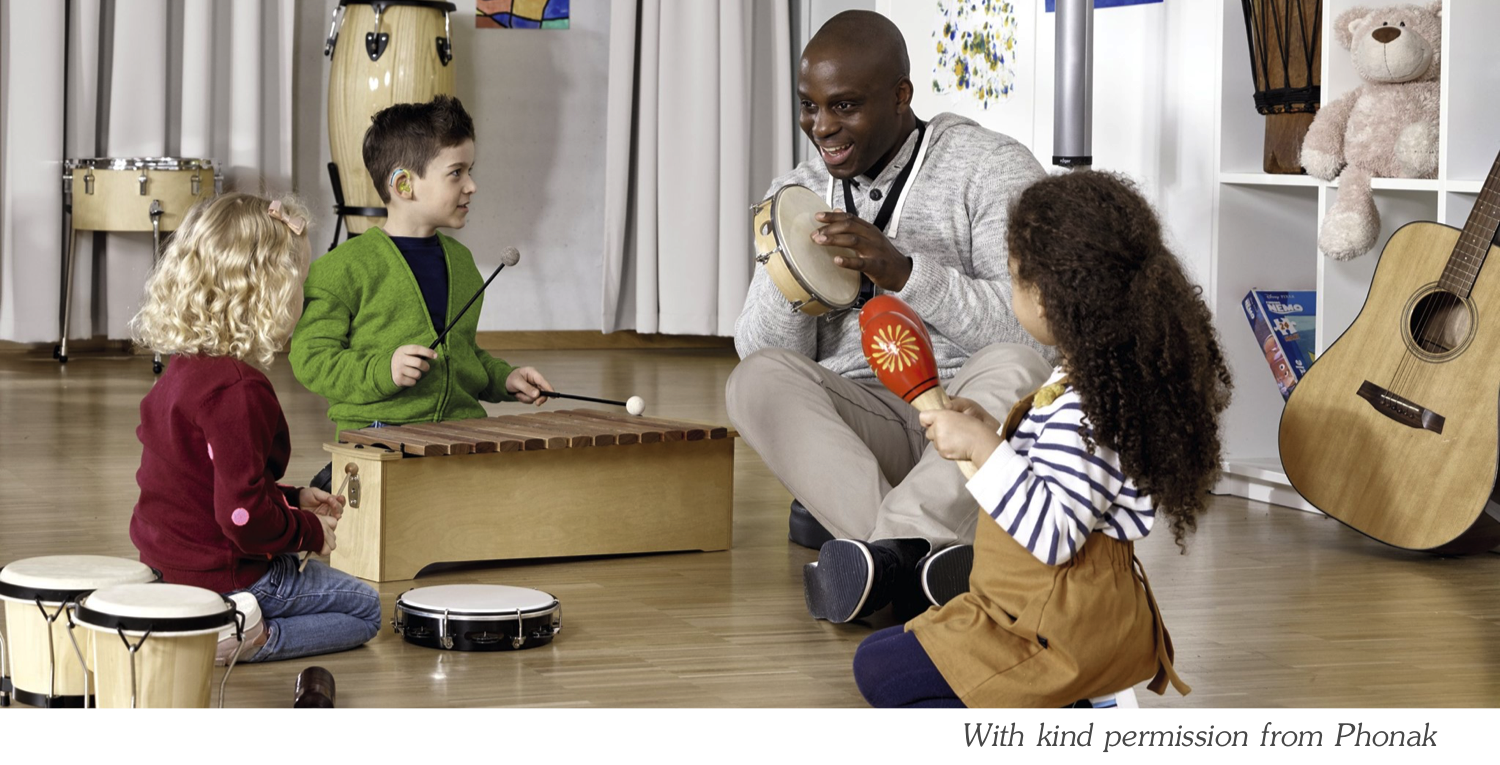Music to promote early language
|
|
Preschoolers
Normal speech development occurs in the first 4 to 8 years of a child's life. It is complex, and all children will use simplification and substitution processes. For example a child might simplify the word 'banana' to 'nana' or substitute a sound in a word, such as 'cuggle' for 'cuddle'. End of words will be missed off (such as du for duck) and some sounds that are harder to say, will be replaced with another (thank becomes tank). Learning to pronounce words correctly is an on-going and complex process that requires the coordination of airflow and muscles, vocal chord movement and the ability to appropriately sequence the movement of the jaw, palate, tongue, teeth and lips. Parents can become concerned that their child is not speaking clearly and try to correct their child's attempts. But practice makes perfect. A child needs to hear the word again and again, many times, to be able to understand and correctly produce it. Correcting a child, highlights the errors made and can lead to frustration, a lack of confidence and hinder progress. Giving a good model back, allows the natural reinforcement needed that is part of the normal speech development process. Singing rhymes and songs can be a really good way of providing the endless repetition that is needed for clear speech production. For example, you may only use the word 'teeth' a couple of times each day when you tell your child it is time to clean their teeth. By substituting your own words into the 'Mulberry Bush' song you can repeat the word 'teeth' over and over again in a very natural way, for example, 'This is the way we clean our teeth, clean our teeth, clean our teeth. This is the way we clean our teeth, when we get up in the morning.' Over 36 months, a child's control over what their attention is focused on is more flexible (Reynell, 1980) but is 'still predominantly single-channelled' (Buckley, 2006:83). Children will give their attention to what is of interest to them and what they enjoy. Developing attention for longer periods of time, will increase a child's potential for sustained interaction in communication. Introducing longer songs and rhymes will require your child to focus and attend for longer, developing these important skills. For children at nursery and pre-school, the world of music, can be used collaboratively to promote social interaction through a fun shared experience. Children can be creative and expressive together as they interpret music through their movements.
Music with pre-schoolers
Song Ideas
References Buckley, B. (2006) Children's communication skills from birth to five years. Oxford:Routledge.
|




